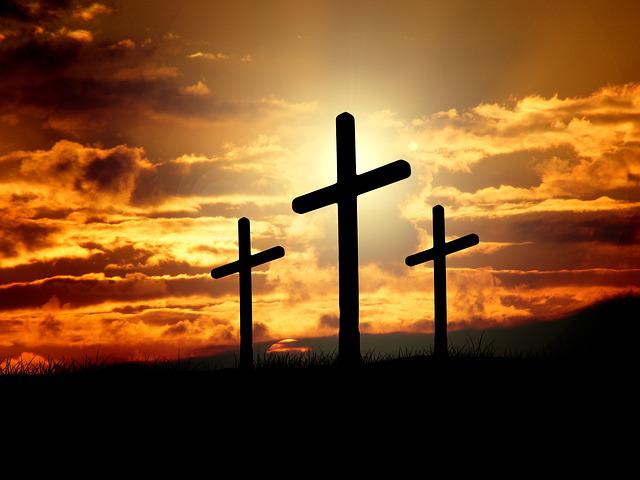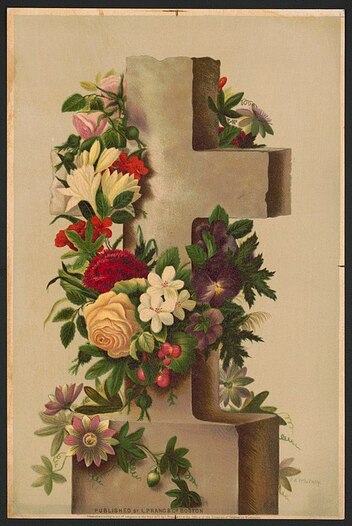|
Music of Passiontide and the Paschal season as we journey through the Triduum and, at long last, arrive at Easter Sunday.
The Maundy Thursday Tenebrae Service begins with a mystical ode to the mysteries of the Eucharist in Olivier Messaien's "Le Banquet Céleste" (the celestial banquet). The Chancel Choir offers "What Wondrous Love Is This" in a contemplative setting by Peter Stearns. Lenten chants from the Taizé tradition will be beautifully embellished with vocal and instrumental descants by members of the Chancel Choir and violinist Harmony Tucker and cellist Aaron Dunigan-Atlee. On Good Friday, we reflect on the ministry of Jesus and the crucifixion in a time of readings, scripture, prayer, and music of Passiontide from the organ. Works by Jehan Alain, J.S. Bach, Johannes Brahms, Pamela Decker, Jeanne Demessieux, and Ludwig Lenel will be prayerfully offered. On Easter Sunday we celebrate the resurrection with a joyful musical potpourri featuring the Plymouth Brass, Plymouth Ringers, Chancel Choir, and the roar of the organ! Easter carols will be aplenty including two settings of the Palestrina tune "Victory" (most associated with the text "The Strife Is O'er, the Battle Done") for brass quintet and organ and my own arrangement for handbells at communion — a gentle fanfare expressing Easter's accompanying quiet joy and assurance. The Chancel Choir offers the simple message of "Christ Jesus Is Arisen" in a Renaissance-inspired arrangement by Michael Burkhardt. Finally, the Easter celebration closes with the ecstatic expression of exhilarating joy in Jean Langlais' "Acclamations," the final movement of his "Suite Médiévale" based on the two-note motif of the Gregorian Chant "Christus Vincit" (Christ victorious.)
0 Comments
The Triduum begins with a two-part service this Maundy Thursday: the commemoration of the Lord's Supper leading into the Office of the Tenebrae (Latin for darkness).
"Le Banquet celéste" (the celestial banquet) is an impressionistic work by Olivier Messiaen based on the words of John 6.56: "He that eateth my flesh and drinketh my blood dwelleth in me and I in him." Composed in 1928, it was Messiaen's first published piece and was meant to connote the sense of eternity present in the Eucharist, reflecting his devout Catholic faith. "Choral dorien" by Jehan Alain closes the service as a musical meditation: serene, mysterious, and hopeful. The Chancel Choir will offer a setting of "Ubi Caritas" (where charity and love are, God is there), the traditional antiphon for Maundy Thursday used at the washing of the feet rite. A beautiful setting of "O vos omnes" by Spanish Renaissance composer and priest Tomás Luis de Victoria will be sung by the Chamber Choir near service's end. Based on Lamentations 1.12, this text is commonly used for Holy Week rites and specifically as part of the Holy Saturday Tenebrae Responsories. On Easter Sunday we will be joined by the Plymouth Brass in joyful hymns, Handel's infamous "Hallelujah Chorus" and an exceptional Chancel Choir anthem by Joel Martinson, "Three Days Had Passed." The Chamber Choir will lead us into the Call to Worship with the introit "Whom Do You Seek" by Roy Stewart. The Plymouth Ringers will also be on hand as we celebrate the Resurrection with Easter hymns during communion. The organ works will be decidedly French with the monumental "Chorale No. 3 in A Minor" by César Franck opening the service. It is a fifteen minute work that could be interpreted as two themes, Life and Death, dancing around each in battle with the chorale theme (Life) winning in the end. This was Franck's last organ work, completed in the year of his death in 1890. The service concludes with the majestic and wonderfully dissonant "Acclamations" from Jean Langlais' "Suite Médiévale". It is based on a two-note chant melody with the text, Christus Vincit (Christ Victorious). At the 6pm service, we'll have a Dixieland Easter! |
Details
|



 RSS Feed
RSS Feed